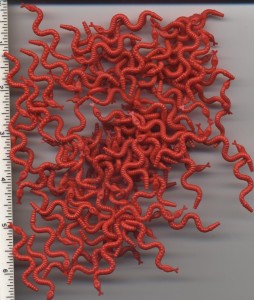
These authentic LEGO snakes lack the LEGO copyright and, unlike many other animals, don’t fit onto LEGO studs.
Every now and then an eBay buyer will message you something along the lines of, “Hey, I received pieces that aren’t real LEGO. What gives?” But they are real LEGO pieces, because you only sell genuine LEGO pieces. So how can a seller prove to the buyer that the piece is authentic LEGO?
Direct the buyer to the “© LEGO” on the piece
The easiest way to prove authenticity is to direct the buyer to the LEGO copyright on the piece (i.e. “© LEGO”). LEGO bricks display “LEGO” on the studs. Many LEGO minifig hair and headgear pieces display “LEGO” on the underside. Find the copyright on the piece and describe the location to your eBay buyer.
Link to a few a examples of other eBay sellers offering the same piece
If the piece doesn’t display the copyright (not all authentic LEGO pieces do!), then the second best option is to link to other sellers listing the same piece on eBay. DO NOT link to other marketplace websites like Bricklink, BrickOwl, or even shop.lego.com! The eBay terms of service state, “We don’t allow links to non-eBay sites where other items are offered for sale.”
Figure out what caused the buyer questioned the authenticity
Usually the buyer will question the authenticity of non-traditional LEGO pieces that don’t “look” or “seem” like LEGO pieces. For example: LEGO string, LEGO rubber belts or bands, pieces not made out of ABS plastic, or other oddball pieces may confuse some buyers.
I had a buyer tell me my LEGO snakes weren’t authentic. They doubted the authenticity since the snakes don’t fit onto LEGO studs. Although the LEGO snake is one of the few animals that doesn’t fit onto LEGO studs, the piece was designed to fit into a minifig’s hand.
Consider adding additional details or photos to the listing to prevent future confusion
Additional details or measurements can sometimes prevent confusion from future buyers. For example, you might add to the snake listing, “These official LEGO snakes are not designed to fit onto LEGO studs, but do fit into a minifig’s hand.”
Further reading:
LEGO vs. Mega Bloks: Tips on Distinguishing Real LEGO from Knockoff Brands and Custom Pieces (BrickingTips.com article)
